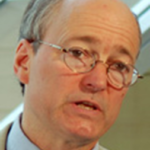FTC tackles economics, technology, ownership and antitrust in ‘workshop’-style hearings next week
The U.S. Federal Trade Commission will tackle economics, technology, ownership and antitrust as it convenes next week the second of two “workshop”-style hearings on the future of journalism.
UPDATE: Here’s the link to the audio:
The session entitled: “How Will Journalism Survive the Internet?,” will run from 10 a.m.-4:45 p.m. on Tues., March 9 and from 10 a.m. to approximately 3:30 p.m. on Wed., March 10 at the FTC’s Washington, D.C., offices. We participated in the Dec. 1-2 sessions and created a wiki resource covering much of the testimony.
Jessica Hoke, the FTC policy planner who organized both next week’s and December’s event, says an audio streamcast next week’s proceedings will be offered, but she wasn’t sure as of March 5 what the URL would be.
UPDATE: Hoke says the audio-cast will be on the workshop’s website on Tuesday morning — or here: http://bit.ly/9ZcKfn … you can download the agenda — PDF.
After introductions, Google Inc. Chief Economist Hal R. Varian will lead off at 10:10 a.m. with a half-hour discussion that will include slides entitled: “Newspaper Economics, Online and Offline.” Varian is also a University of California-Berkeley business-school professor.
A six-member panel will tackle copyright issues and journalism from 10:40 a.m. to noon. At 1:30 p.m. on Tuesday afternoon, NPR’s “On the Media” host and Advertising Age columnist Bob Garfield will overview “The State of Advertising.”
Pulitzer Prize-winning reporter Sarah Cohen, who last April joined Duke University’s effort to understand and promote computational journalism will talk for 15 minutes at 2 p.m. about technologies to lower the cost of journalism.
Tuesday will wrap up from 2:15 p.m. to 4:45 p.m. with discussions and a panel on corporate and tax approaches ot restructuring news organizations, including Bob Lang, the originator of the “L3C” corporate form which allows for-profit companies to legally operate with a social mission which trumps profits.
The highlight of Wednesday’s sessions is a 1:30 p.m.-3 p.m. panel entitled “Competitor Collaborations to Aid Journalism,” a title which neatly sidesteps the key issue here — is it possible for news organizations to collaborate on business issues without violating antitrust laws? The Journalism Trust Association is one such proposal. The panel includes tree lawyers, a law professor, and Stephen Nevas, executive director of the law and media program and senior research scholar at Yale Law School.

Comments